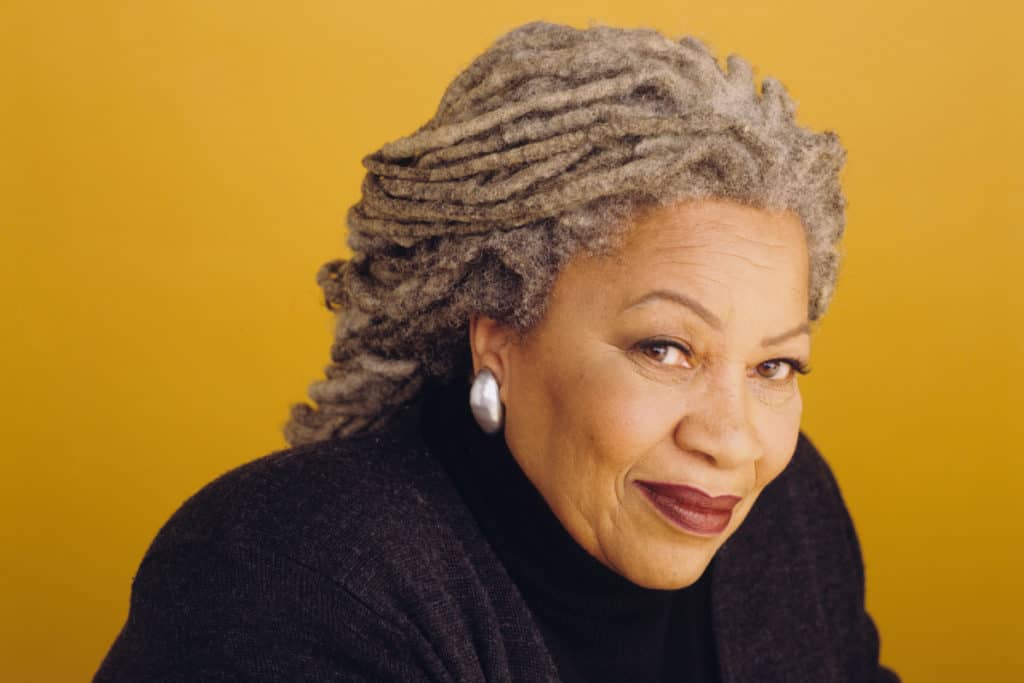The post has been a labor of love. It’s something I believe in strongly, because it frustrates me to see how many talented, creative people give up after experiencing failure and rejection. They’re a beast to push through, but failure and rejection aren’t simply necessary evils on the way to success — they’re a crucial part of the learning process.
I see it often with my clients.
“What if I pour my soul and energy into writing a novel and I never finish?”
“What if what I write is terrible, and no one wants to read it?”
“What if I can’t do it?”
In the words of my bible teacher from high school, “What if you didn’t ask that question?”
What-ifs aren’t useful. All they do is hold you back. When you allow these thoughts to take over, you prevent yourself from throwing your full attention into your development. Why? Because you surreptitiously convince yourself that as long as you don’t try your hardest, you can always excuse the failure. Right?
Dead wrong.
???? Failure and rejection, however painful, lead you to identify where you went wrong, reconfigure and find the best path to continue. You learn from the past to create a more successful, well-rounded and more satisfying future. You learn to rely on yourself. You learn to believe in yourself and not be swayed by naysayers and bad advice.
This is a topic I cover quite extensively in my writing workshops and through other resources in The Workshop, my online writing community that helps you build your writing community and the skills to develop your writing and writing platform.
Keep this in mind: Without failure, you will never move forward and achieve your true brilliance.
Don’t just take my word for it…
In addition to researching people I admire, I contacted friends, mentors and leaders in travel, writing and the business world to pose the following question:
???? Was there a time you failed or were rejected while trying to build your business? How did that failure and rejection help you to ultimately succeed?
Here’s what they had to say.
1. David Cain
An author and entrepreneur, David writes about getting better as a human being on his very popular and wonderfully inspirational blog Raptitude. His articles answer questions like How to Get Out of Your Own Head and When There’s Stress, There’s A Story.
This is his answer:
“My biggest success is a direct result of my biggest failure. My life pretty much ground to a halt when I was in college. I was flunking and had lost every trace of confidence. I couldn’t even make eye contact with cashiers. I felt like I had failed at becoming an adult. It was so unbearable that I began reading everything I could find related to happiness and well-being.
I learned a ton and gradually turned around my life. Eventually, I began writing about it, and people kept telling me how much my writing was helping them. My blog became a big success, and now I do it full-time. I love it. I often wonder how boring my life would be now if my life never fell apart like it did back then.”
2. Caroline Makepeace

Caroline with her husband Craig on the beach with their two beautiful daughters.
Former elementary school teacher Caz Makepeace travels full-time with her family, supporting them through her blog and other writing and business endeavors. You can read her inspirational writing on her well-known YTravel Blog website, which focuses on family travel, raising children and finding your bliss in life.
Here’s how failure has impacted her success:
“Failure used to be something I feared and thought reflected my worthlessness. I now know failure to be the guiding hand of a friend, refining my skills and deepening my insights, so that I can do it with more finesse and passion next time. Each new rejection or mistake is helping me clear the way to get closer to the victory patiently waiting for me at the end of the journey.”
3. Lionel Shriver
Lionel Shriver is a US-born author and journalist living in the United Kingdom. Her novels include “Big Brother,” “The Mandibles: A Family, 2029-2047” and the bestselling book “We Need to Talk About Kevin,” which won the 2005 Orange prize.
Here’s her philosophy on failure and success:
“As if the story of the book itself were fated to duplicate the story inside the book, my sixth novel, Double Fault, was purchased by Doubleday in 1997 with great fanfare, yet in hardback sold so poorly that no house bid for the paperback until many years later. At core, that book is about failure – a subject about which, as a struggling writer, I’d grown depressingly expert. Hungry for both fantasy and inspiration, readers crave protagonists who, after overcoming seemingly insurmountable obstacles, triumph at the end of the day. No one wanted to buy a book about disappointment.
Yet most people fail. In the big picture, few of our careers live up to the dreams we nursed when we were young. In fact, one underside of success is that it’s nearly always penultimate, and so every accomplishment merely raises the bar. Each new success conjures new standards we can’t meet, thereby inventing ingenious new ways to fail. I’ve not been awarded the Nobel Prize for Literature, and may never be. My latest novel missed the Times top 10 bestseller list by 46 copies. Most of the reviews were good, but they weren’t all good. It’s a doddle to locate a perspective from which I am still failing.”
She continues:
“I’m fascinated by failure, a far more difficult experience to ride out with grace than victory, which tends to bring out the best in all but gloating arseholes: magnanimity, generosity, ease, confidence, joy, relaxation, energy, festivity, and a positive outlook. In contrast, failure naturally elicits bitterness, resentment, dolour, enervation, listlessness, pessimism and low self‑esteem – a pretty ugly package.
Yet, against the odds, it’s possible to fail well – to rise above the unpleasant basket of emotions that come with the territory and to not allow disappointment to sour one’s very soul.”
4. Mariellen Ward
Mariellen Ward is a professional travel writer based in Toronto and Delhi. Breathedreamgo.com, her award-winning travel blog about meaningful adventure travel, is inspired by her extensive travels in India. Though Canadian by birth, Mariellen considers India to be her soul culture. You can also find Mariellen on Facebook and Twitter.
On the relationship between failure and success, Mariellen says:
“I spent the last year or so feeling like a failure. After throwing myself, heart-and-soul, into building my blog and travel writing career for about six years, I hit the wall. I was exhausted, broke and had strayed so far from my original passion I couldn’t remember why I was doing it.
At my lowest ebb, in mid-November 2013, I expressed my despair on Facebook, and many friends replied with encouragement. One suggested a goddess puja (ritual) because it was almost the full moon. I did it. I prayed with sincerity and vulnerability for insight, or a lucky break or positive energy… anything to get me moving out of the abyss of failure I felt I was in.
Then, the next day, everything changed. I landed a part-time job. My brother helped me upgrade my old phone, and a colleague contacted me about a contract that could help make all my dreams come true.
Since then, I have been feeling more positively, and as a result, many more positive things have happened to make me realize that I am not a failure, and my writing/blogging career is not a failure. In fact, there is no such thing as failure. What I have come to realize is that we are a work-in-progress and everything that happens, happens for a reason: to teach us.
Everything ultimately starts with our thoughts. Though no one knows exactly how much control we have over the events of our life, we do have control over how we think and how we respond, and that makes all the difference.”
5. Heather Webb
Heather Webb is the USA Today bestselling and award-winning author of seven historical novels. To date, her books have been translated into more than a dozen languages. Based in New England with her family their feisty rabbit, Heather is also a public speaker, editor and consultant. With so many successes under her belt, failure is no stranger to this powerhouse.
In this post about failure, she writes:
“Well, I recently entered two contests and wasn’t selected. I’ve had agents who didn’t want me, editors who didn’t want my book(s), and enough negative reviews to be christened an author. I’ve also had the illustrious pleasure of receiving a small handful of emails from Wikipedia Historians telling me why I’m wrong about some research. Failure indeed. I’ve had lots of it, and suspect plenty more lies on the horizon.
For writers, failure is a four-letter word. We fear it, we dread it, and we try to avoid it at all costs. But perhaps we give it too much power. Maybe it’s best to run straight at it, helmet on. Learning how to cope with “failure” comes through loads of practice (sadly), but it also comes through two important skills a writer needs to survive: accept when your craft needs work and develop your own philosophy of failure.”
6. Toni Morrison
The late and great Toni Morrison was the first African-American woman to win the Nobel Prize in Literature. Her literature and best-selling work explored Black identity and the often harrowing experiences of Black women in America. She was the author of 11 critical novels — including the award-winning book “Song of Solomon” and the Pulitzer Prize-winning “Beloved” — plus a number of children’s books and essay collections.
In an interview with NEA Arts Magazine, Morrison discussed responsibility to one’s characters and why failure is a good thing. Here’s an excerpt:
“As a writer, a failure is just information. It’s something that I’ve done wrong in writing, or is inaccurate or unclear. I recognize failure—which is important; some people don’t—and fix it, because it is data, it is information, knowledge of what does not work. That’s rewriting and editing.
With physical failures like liver, kidneys, heart, something else has to be done, something fixable that’s not in one’s own hands. But if it’s in your hands, then you have to pay very close attention to it, rather than get depressed or unnerved or feel ashamed. None of that is useful. It’s as though you’re in a laboratory and you’re working on an experiment with chemicals or with rats, and it doesn’t work. It doesn’t mix. You don’t throw up your hands and run out of the lab. What you do is you identify the procedure and what went wrong and then correct it. If you think of [writing] simply as information, you can get closer to success.”
7. Akwaeke Emezi
Author of 5 books — including “Freshwater” and “The Death of Vivek Oji” — Akwaeke Emezi is a Nigerian Igbo and Tamil award-winning writer and video artist. On top of being a finalist for esteemed writing awards like the 2021 Orwell Prize for Political Fiction, they were also recently featured on the cover of TIME Magazine as a Next Generation Leader.
In this article, Akwaeke talked about their relationship with rejection. Here’s what they shared:
“Before we did the two-book deal with Riverhead, there was this residency in Germany that I wanted more than anything. I wanted it so badly. They would pay for you to live there for a year, and they gave you this apartment, and they gave you a stipend. Two of my friends had done it before, and I was like, I want this. It symbolized everything — you know, financial and housing stability, I would get to travel, I would get to live in a new country. I wanted it so badly, and I worked so hard and I did not get it. And I remember being so sad about that, but then a few weeks after I found out that I didn’t get the residency, then the Riverhead deal happened.
That year in which I was supposed to be — in my mind — in Germany, I ended up moving to New Orleans, living between here and New York for a couple of months, then buying a house here and building a whole permanent life. So one of the things I’ve learned is that, a lot of the time, rejections are like doors that close because there’s a path somewhere else that I’m meant to be on. I don’t really feel bad about rejections anymore because I’m like, Okay, that’s cool. I’m not supposed to go there. I can’t wait to find out where I am supposed to go, because that’s going to be awesome in a way that I didn’t even imagine.”
9 links to inspire your leap into the abyss of failure
✍️ A bank of 500 writing prompts is sure to get your creative juices flowing when it feels like every avenue has dried up. When it feels like everything you pen belongs in the trash, remember: You can’t fail if you don’t quit.
❌ Think it’s just you? Here are 12 rejection letters of massively popular authors. Classic writers heralded as the greats aren’t exempt from scathing rejections that make you question your entire career. We don’t know how they responded, but we do know they persevered.
♻️ How to Fail Like a Pro. Did you know Inventor James Dyson built 5,127 prototypes before he succeeded in revolutionizing the vacuum cleaner? That’s what host Stephen J. Dubner shared in this episode of the Freakonomics podcast, part of its “How to Be Creative” series. “The road to success is paved with failure, so you might as well learn to do it right.”
????♀️ How do you react to being wrong? Seth Godin discusses how “doubling down on wrong always makes things worse,” so you’re better off building systems to learn from your mistakes. That way, you can avoid them the next time around.
???? The Science of Persuasion. Learning how to get people to do what you say is always a worthy skill to have up your sleeve — because sometimes, success is a matter of getting people to see things just a little bit differently.
???? Does Teaching Kids To Get Gritty Help Them Get Ahead? Grit is the ability to sustain your passions and work hard at them over disappointingly long periods of time. Angela Duckworth, the psychology professor who coined the term, won a MacArthur genius grant for it.
???? Why We Should Embrace Mistakes in School. Mistakes are important, because they highlight where you need to practice. But many students struggle to adopt this mindset. According to a UC Berkeley professor, “The fear of failure is directly linked to self-worth or the belief that you are valuable as a person.” He found “students will put themselves through unbelievable psychological machinations in order to avoid failure and maintain the sense that they are worthy.”
???? A full compendium of TED Talks on failure.
???? How To Fail With Elizabeth Day podcast celebrates the things that haven’t gone right. In each episode, she introduces you to a new interviewee who explores what their failures taught them about how to succeed better.
A final rule of thumb to handle failure & rejection well the rest of your life
I contacted tons of people asking for this post, and many said no or didn’t get back to me at all. Maybe they were too busy or didn’t get my e-mail? Maybe this question wasn’t important enough for them to stop and answer? (Fair enough.) I really have no way of knowing.
This is when I go to The 99.9% Rule: 99.9% of the time, it’s not about me. People are busy and they have lives, or they just simply forget. It’s as important to give them the space and benefit of the doubt you would want others to give you.
This is a good practice to keep in mind as you move toward your own goals: Treat yourself with kindness. And remember that even if success doesn’t take the path you expected, the frustrations of failure and rejection you experience along the way are all part of the process. ???? Let them lead you to success.
Ready to conquer your own fear of failure as you create your ideal writing life? Join me in The Workshop!



